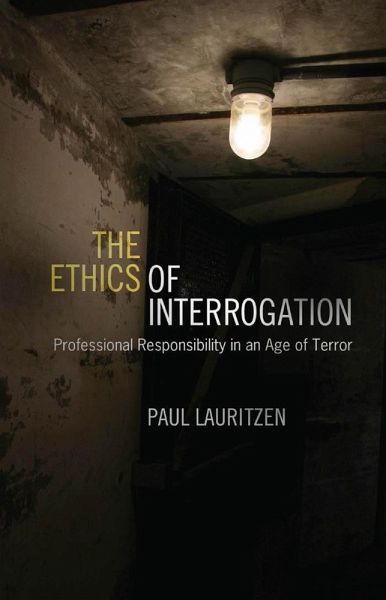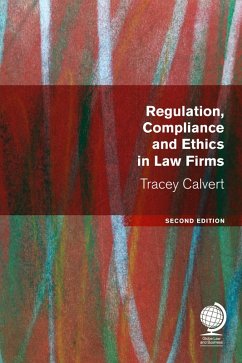
The Ethics of Interrogation (eBook, ePUB)
Professional Responsibility in an Age of Terror

PAYBACK Punkte
12 °P sammeln!
Can harsh interrogation techniques and torture ever be morally justified for a nation at war or under the threat of imminent attack? In the aftermath of the September 11, 2001, terrorist strikes, the United States and other liberal democracies were forced to grapple once again with the issue of balancing national security concerns against the protection of individual civil and political rights. This question was particularly poignant when US forces took prisoners in Afghanistan and Iraq who arguably had information about additional attacks. In this volume, ethicist Paul Lauritzen takes on ethi...
Can harsh interrogation techniques and torture ever be morally justified for a nation at war or under the threat of imminent attack? In the aftermath of the September 11, 2001, terrorist strikes, the United States and other liberal democracies were forced to grapple once again with the issue of balancing national security concerns against the protection of individual civil and political rights. This question was particularly poignant when US forces took prisoners in Afghanistan and Iraq who arguably had information about additional attacks. In this volume, ethicist Paul Lauritzen takes on ethical debates about counterterrorism techniques that are increasingly central to US foreign policy and discusses the ramifications for the future of interrogation.
Lauritzen examines how doctors, lawyers, psychologists, military officers, and other professionals addressed the issue of the appropriate limits in interrogating detainees. In the case of each of these professions, a vigorous debate ensued about whether the interrogation policy developed by the Bush administration violated codes of ethics governing professional practice. These codes are critical, according to Lauritzen, because they provide resources for democracies and professionals seeking to balance concerns about safety with civil liberties, while also shaping the character of those within these professional guilds.
This volume argues that some of the techniques used at Guantánamo Bay and elsewhere were morally impermissible; nevertheless, the healthy debates that raged among professionals provide hope that we may safeguard human rights and the rule of law more effectively in the future.
Lauritzen examines how doctors, lawyers, psychologists, military officers, and other professionals addressed the issue of the appropriate limits in interrogating detainees. In the case of each of these professions, a vigorous debate ensued about whether the interrogation policy developed by the Bush administration violated codes of ethics governing professional practice. These codes are critical, according to Lauritzen, because they provide resources for democracies and professionals seeking to balance concerns about safety with civil liberties, while also shaping the character of those within these professional guilds.
This volume argues that some of the techniques used at Guantánamo Bay and elsewhere were morally impermissible; nevertheless, the healthy debates that raged among professionals provide hope that we may safeguard human rights and the rule of law more effectively in the future.
Dieser Download kann aus rechtlichen Gründen nur mit Rechnungsadresse in A, D ausgeliefert werden.













